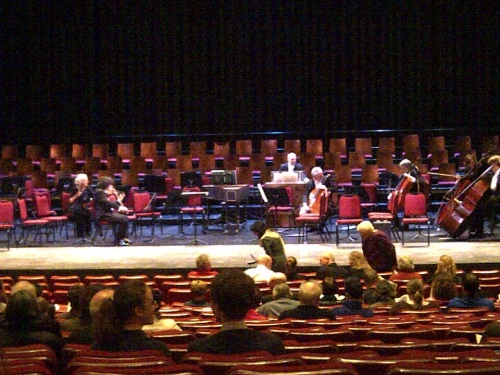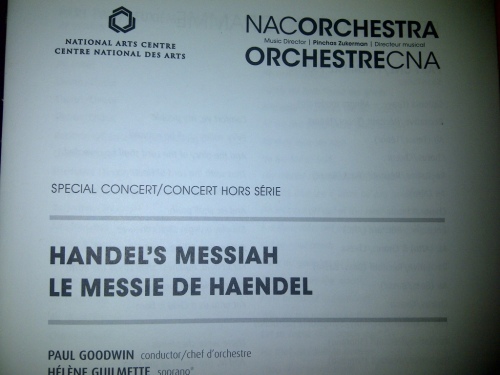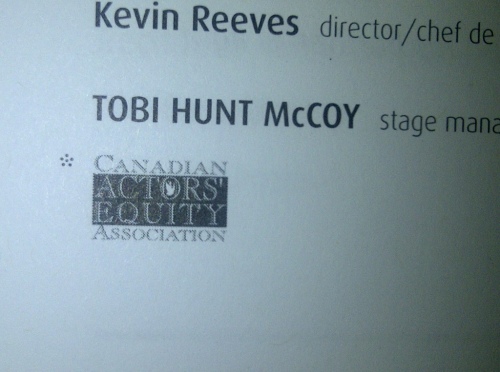John Robert Hurley is an up-and-coming director based out of New York City. I interviewed him this Easter weekend while hanging out in Brooklyn. Learn all his secrets! Learn how to teach Shakespeare! Learn about directing!
You are a director with the Ready, Set, Go! Theatre Co. What was your most recent project with them?
What did that involve?
We made the world’s first Shakespeare webseries as a tool for high school teachers, who are required by state and federal law to teach Shakespeare.
Why was this important?
The methodology for teaching Shakespeare has not really changed in the last hundred years. A lot of schools these days try to solve problems by throwing money at them, so they get a lot of technology grants, which benefit, perhaps, math and science teachers. For English teachers, there aren’t a lot of tools to make use of the technology.
Where does “Othello” fall into this?
“Othello: The Webseries” allows the students to view an episodic version of the story presented using characters and costumes that are more familiar to them than a classic dress production. Also, we go into the schools to work with the teachers so that the students can make their own visual interpretations. Depending on what [resources] the school has available, some of the students have made YouTube channels and done video interpretations of the story. They have to film a scene or a monologue and write the Shakespearean text into their own vernacular. And if the school doesn’t have the technology to film that or to put it on the internet, then it becomes more of a live performance for the students; or if they don’t have the time, it becomes a written project – translating the monologue into their own vernacular. But the idea is that they realize that the language is accessible and that they can actually express themselves more clearly using complex language construction rather than like the rest of society, [which] insists on simplification.
Have you heard back from any students directly about their experience with the material?
Not as of yet because this is all fairly new. We’re in the process right now of working with the students. Part of that process is debriefing them, which we will be doing in the next couple of months to find out what their experience was so that we can understand what they are getting and what they’re not getting and adjust our pedagogy accordingly.
Have you spoken with any of the teachers?
The teachers are all very excited because they’re trying to reach a generation raised in a world of flashing lights and sound bites, and they’re trying to convince these students that this text from 500 years ago is valuable and is relevant to their world, their lives. Reading the play and watching a Zeffirelli film is not perhaps the most efficient or effective way to do so. [With] a production of Shakespeare where the acting is good [and] the costuming is fairly close to what the students themselves are wearing, you’re lowering perceived hurdles that [the students] have to jump in order to “get it.” I think a lot of students come in already believing that they, A, won’t get it, or B, that there’s nothing to get – that it’s just a dusty old, archaic relic that they’re being forced to study. So by presenting it in a way that appeals to them, you’re meeting them on their own turf; instead of making them come to you, you’re trying to meet them half-way [so they can] understand that the language and the stories are very complex and live on an emotional level that we’re not very comfortable with, especially in the United States. You’ve got to meet them somewhere, because [if] you’re teaching them how to communicate in this way, you can’t expect them to already know. You have to lay it out in pictures, in a sense, because the language is very hard to “get” as just text.
Do you worry that by doing Shakespeare so “modern” that you’re dumbing it down?
No, I don’t think we’re dumbing it down. I think this is a conception that people have, that if your characters are not actual kings of a country or an industry or something, then you’ve removed the nobility or have removed the stakes from the play. But a teenage individual lives with these stakes much more often than the rest of us do, because to them everything is life and death. Everything is that serious, because they have no concept of scale. Every day is full of comedy and tragedy. Or at least it was for me as a teenager. Everything was super serious and everything was really funny at the same time. So I think by presenting these characters as something closer to a run-of-the-mill person, so to speak, someone who is at least existing within the world of students and not in some realm they’re unfamiliar with, you’re not only making it more accessible to them, you are validating their lives and the role of literature in their lives. Literature can portray them as well as kings and queens; these stakes exist for all of humanity and not just the nobility and the gods and the people who lived 600 years ago. These things still exist and they’re still relevant today.
You are also working on Tony Kushner’s “Slavs!” with university students as a guest director at Roanoke College in Virginia. What can you say about that project?
It’s very interesting. I’ve been in New York since 2007 and only working with people who really, really want to be actors and have really put a lot of effort into being actors, and take themselves very seriously as actors, for the most part. So to go to an undergraduate university where the majority of my cast are not even Theatre Majors was an interesting challenge. I’ve been very pleasantly surprised by how dedicated they are to doing the foundational work to make the play fly. They got off book quicker than any of my casts here in New York have, hands down. They really put in the work to get themselves ready, and they’re doing some very good work. There are a few people who are less committed and who are more interested in the applause than the work – and it shows – but for the most part, they’re very genuine, very committed to what they’re doing.
How is it for you from a teaching perspective?
It’s interesting, because they don’t know, you know? They are flying by the seat of their pants, as far as how to do what they’re doing as actors. They don’t have any technique or proven methodology that has helped them in the past. It’s all new to them. So you spend a lot of time coaxing and coaching and educating them about very basic elements of being an effective actor, from things as simple as how to move around a stage, because they don’t have the experience of working a room, like a well-experienced actor has. An actor who’s been on stage a hundred times knows how to work a crowd. It’s just innate in the way they present themselves. But to someone who’s doing it for the first, or maybe the fifth, time, it’s something that they have to concentrate on. Where am I standing? Where am I looking? Where is my light? Where is the audience? So that’s interesting.
What’s a particular challenge for non-professional or student actors?
We had a rehearsal the other night where all three of the actors, who know their lines, were having a very tough time remembering their lines. All three of them were very present in the scene, and they were listening, and they were responding to each other, and true emotions began to happen. Because they’re so unused to dealing with real emotion in their lives, the way their body combats it is in dropping the lines: in order to squash the emotion, the brain takes away the lines. It forces them to stop what they’re doing and search for the line. As an actor, you have to learn that when the emotion comes, you have to keep fighting to communicate with your scene partner and that it’s okay to fumble for the line. They were getting so frustrated with themselves about dropping their lines rather than just remaining present with their scene partner and continuing to try to communicate, rather than trying to get the line “word-perfect.”
How do you talk to actors about emotion?
Something I say to actors a lot is, “You know when you’re upset with someone, but you’re trying to communicate with them – all characters in every play ever written are trying to communicate with each other – you might be angry, but you’re trying to keep a lid on it so that you can continue to communicate.” But in order for an actor to create that on stage, first they have to let it go. They have to take the lid off and find out what that is. And only once they create that thing, can they then try to keep a lid on it. But if they try first to go to the place of keeping a lid, then it’ll never work because you don’t know what you’re fighting against. You’re just shadowboxing at that point.
How would you compare teaching through something like “Slavs!” with trying to teach Shakespeare through video?
The topics are different but the technique is similar. If you want to teach something complex, or if you want to create something complex, the method is the same: you have to create layers of simplicity, either in the creativity or in the understanding. So if you want to teach someone about “Othello,” you can’t start by telling them all of the nuances. You have to start with A happens and then B happens and then C happens and then D happens. And then we go back: and then A-and-a-half happens, and then A-and-two-thirds happens. So that by beginning from simplicity, you can create a complex whole, either in your creative process or in your understanding. If you’re directing something that needs to be very subtle and very nuanced, you can’t go there immediately. You have to build around grand gestures and grand emotion. Then you try to pull it back, or then you try to refine it. But if you try to go for the refined version first, it’ll never work.
Do you think that directing always involves some kind of teaching?
To a certain extent – especially depending on the play. With a play like “Slavs!”, if you’re directing it in Virginia, whether with a professional company or with students, like I am, there’s a tremendous amount of historical and sociological background that must be understood in order to understand what you’re saying as the character. So unless you have a dramaturge, it is you who is teaching them the history that is involved. I don’t think directing always involves teaching [though] because when you have good actors who are professional and have their own technique and methodology, then they are giving you clay to mould. And so then the relationship is not about teacher and student, it’s a sculptor and clay, where you respect the material and its capabilities and craft out of it. Like they say about marble, you remove the pieces that aren’t there in the sculpture.
What is the difference between working with professional actors and student actors?
A professional actor is providing you the material that you need, whereas with a student actor, you are teaching them how to provide the material. You are teaching them what it means to be a professional actor: to come in and not wait for the director to tell you what to do but to give him or her something to work with. I enjoy both, but it’s especially exhilarating to work with an actor who you are just refining what they’re giving you, or when a student actor begins to inspire you because they’re truly beginning to work. I find that particularly exhilarating. One of the examples I always point to is actually Jessica [Ranville]. When I worked with her in her final year of grad school, by the time the performance came around, I had no idea what she was going to do each night, I just knew it would be right. That was extremely rewarding as a director, to be able to sit there and be surprised by your own work. To me, the ideal situation as a director is that you’ve provided a stage for them to work on, and together you’ve defined the world and the stage in its relationship. And then you set them free.
Last question: what’s next?
We begin casting for “Romeo and Juliet” when I finish “Slavs!”, which will be our next webseries, and then we go from there.
Many thanks to John Hurley for being a good sport! “Slavs!” runs April 10 to 13, 7:30pm at Olin Hall, Roanoke College, Virginia.





